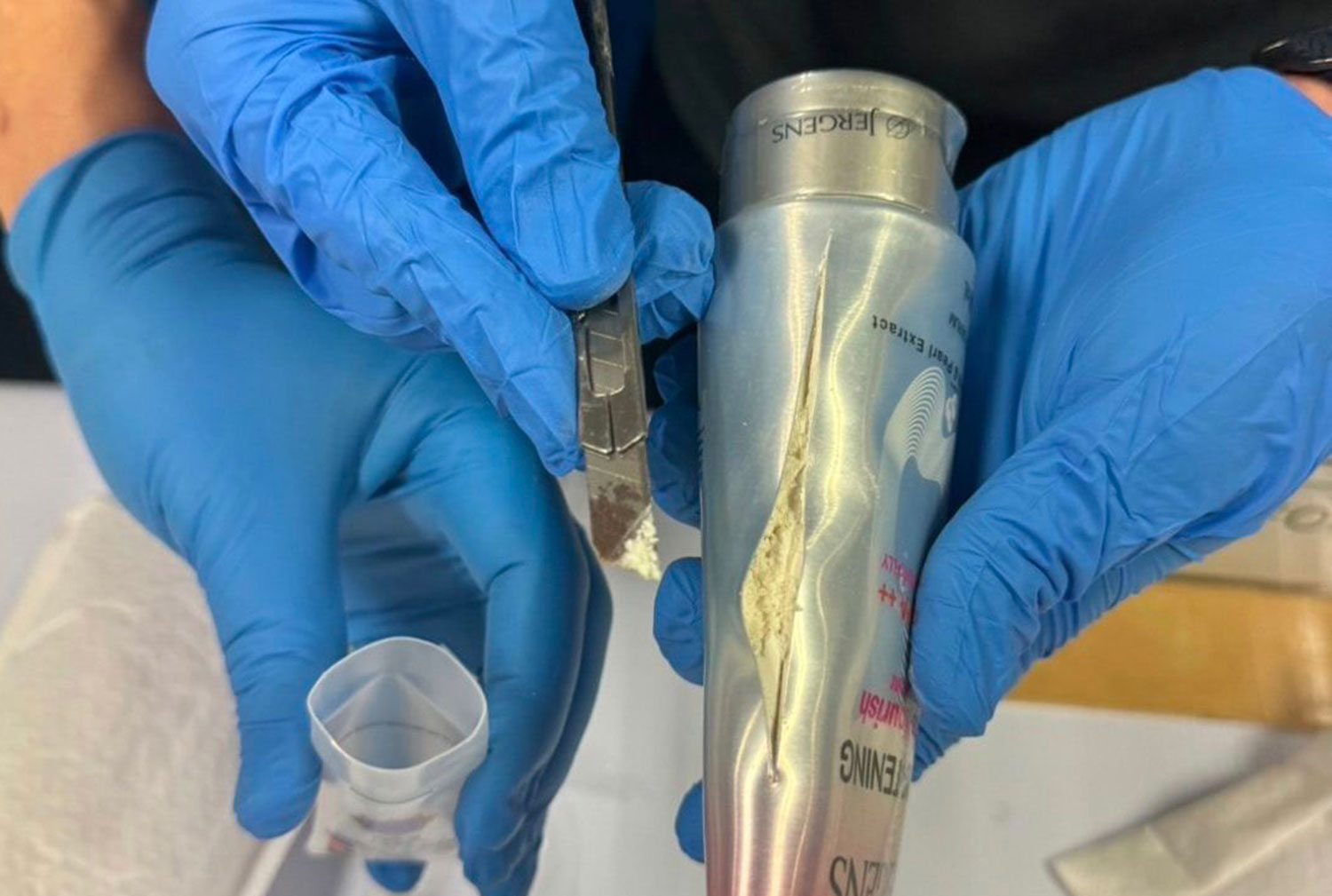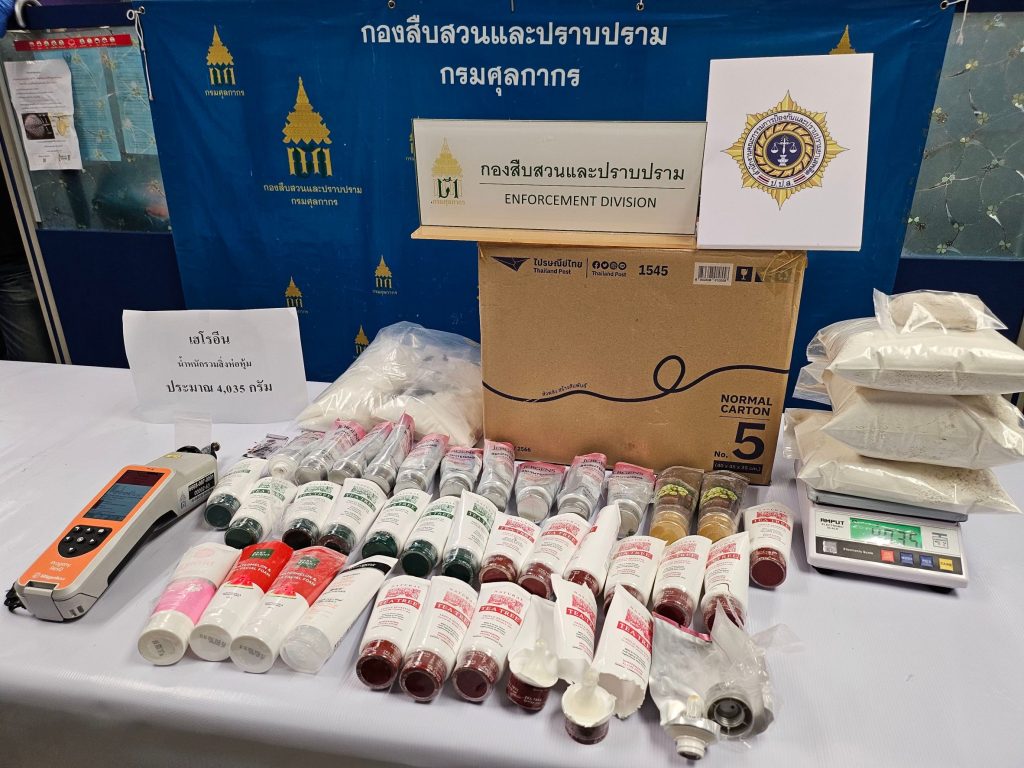Customs agents confiscated 7.2kg of heroin from two Australia-bound packages of moisturizing cream tubes at Bangkok’s Suvarnabhumi Airport. Customs agents and officers from the Airport Interdiction Task Force (AITF) made the find while inspecting two suspicious shipments yesterday.
When investigators opened the shipments, the substances inside were listed as “face cream,” they discovered heroin concealed within tubes of moisturizing cream, a Customs Department official stated.
The heroin weighed 7.2 kilograms and was worth around US$585,000 (21.5 million baht). According to the Customs official, the goods were bound for Australia.
Thailand’s Customs Department is collaborating with the Office of the Narcotics Control Board and the police Narcotics Suppression Bureau to broaden the investigation to identify people involved in drug smuggling.
According to the spokeswoman, between October 1 of last year and February 29, customs authorities recovered 64 batches of illicit substances valued approximately 351.3 million baht.
The government has directed its agents to remain on high alert for drug smuggling, as traffickers use a variety of devious tactics to transport illegal drugs out of the nation without detection. Heroin smuggling is a big concern in Thailand, as the country is located along key drug trafficking routes.
The scenario comprises complicated networks that pass through several places, including the infamous Golden Triangle. Authorities encounter enormous challenges in suppressing these unlawful operations, which frequently lead to violence and severe hazards.
Heroin smuggling has far-reaching consequences for Thai society and the economy, in addition to legal implications.
The flood of illicit narcotics exacerbates addiction, crime rates, and health problems. Furthermore, the destabilizing impacts on communities and the economy are immeasurable.
Despite continued efforts by government and international alliances, combating heroin smuggling in Thailand remains a difficult task.
Thailand’s diverse regions have become synonymous with heroin manufacture and delivery, continuing the drug trafficking cycle. Notably, Shan state in Myanmar has become known for its role in the cultivation of opium poppy plants, which are used to make heroin.
According to Customs, the proximity of these production facilities to Thailand highlights the country’s vulnerability to being utilized as a conduit for the distribution of illegal drugs.
Efforts to combat heroin manufacture and distribution in these major areas continue as officials work to reduce the flow of drugs into Thailand and elsewhere.
Understanding the complexities of drug trafficking pathways and the dynamics of production facilities allows stakeholders to develop tailored solutions to address the issues posed by heroin smuggling in Thailand.
To effectively combat drug trafficking, a comprehensive approach combining law enforcement efforts, international cooperation, and community engagement is required.
Thai Customs Bust American Smuggling 1.1Kg of Heroin








